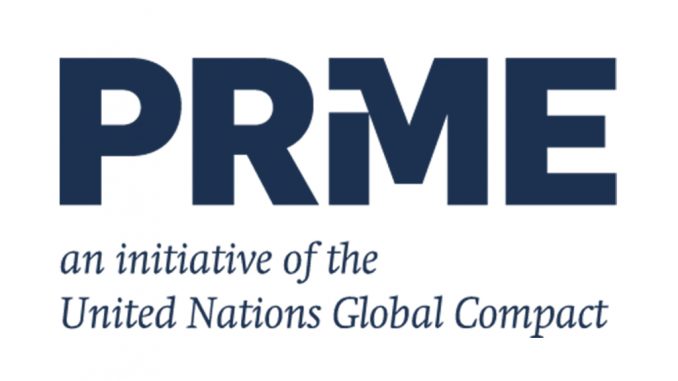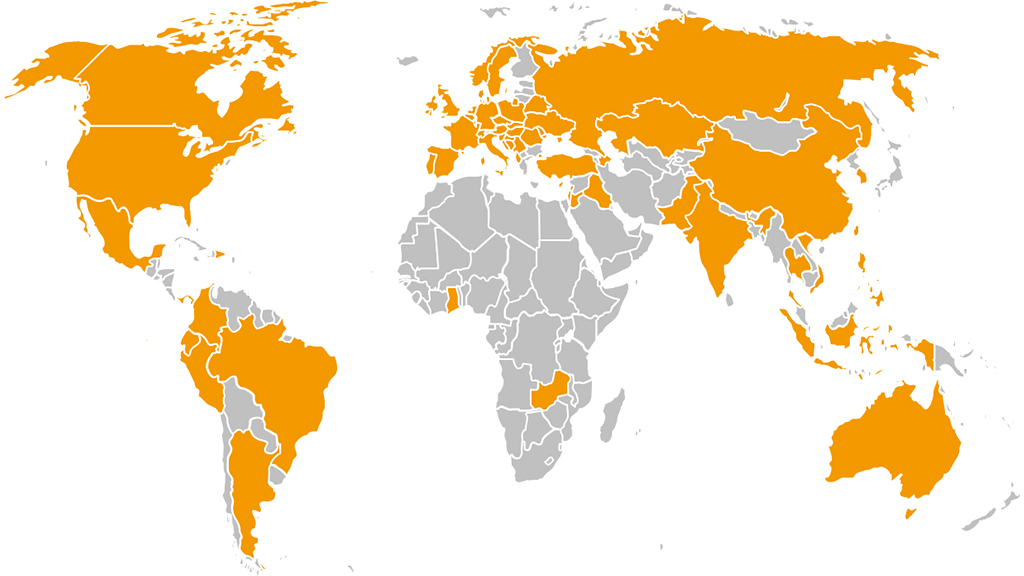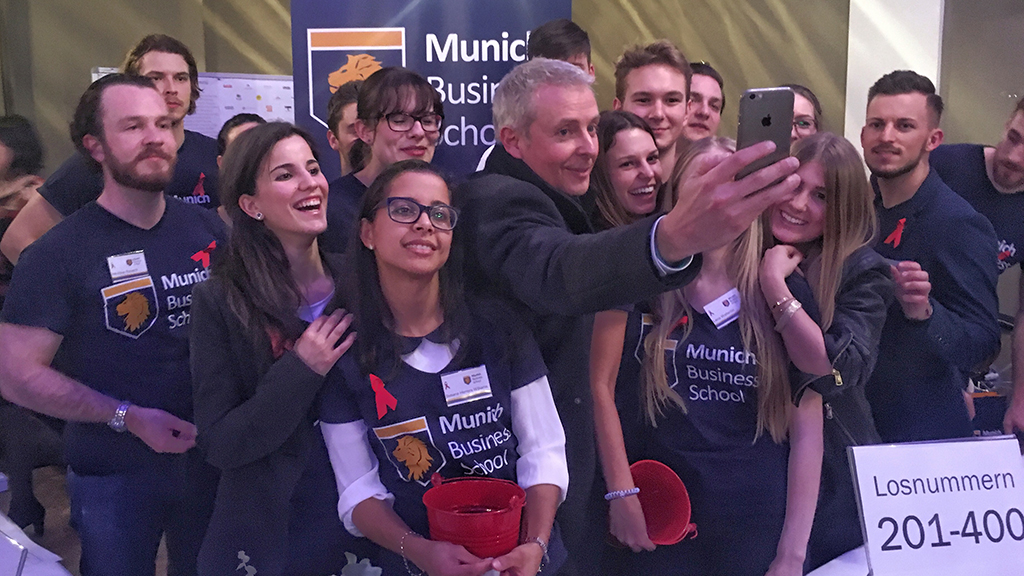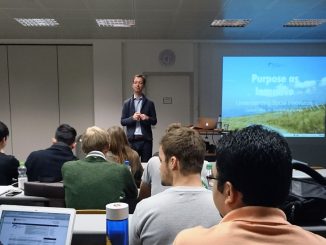
Part 1: MBS Supports the Principles for Responsible Management Education
Leadership and Responsibility as Research Fields
In the intuitive prioritization of executives, the stakeholder perspective of balancing demands and interests from different groups in society is becoming more and more important. Sustainable development of both employees and also organizations or economic areas is indispensable for a long-term global economy.
That is why one of the five central research fields of Munich Business School is “Leadership and Responsibility“. Specific research topics, examined together with partners from science and practice, are “Conscious Business“ (Prof. Dr. Christian Schmidkonz), “Corporate Volunteering“ (Prof. Dr. Barbara Scheck), “Corporate Sustainability Reporting“, the “Business Ethics Wiki ‚Value vs. Values“ (Prof. Dr. Gottfried J. Schäffner) as well as “Global Sustainability and Corporate Responsibility“ and „Human Resources, Sustainability and Ethics“ (Prof. Dr. Jose M. Alcaraz-Barriga).
The research field “Innovation & Entrepreneurship” also approaches the subject of responsible entrepreneurship, with research papers on “Social Entrepreneurship“, “Social Franchising“, “Impact Investing“ and “Microfinance“ (Prof. Barbara Scheck). Munich Business School makes important contributions to practical research with these projects, to the operational practice of responsible entrepreneurship and also to highly up-to-date teaching and advanced training.
The Diversity of Our Student Body Is the Most Important Fundament
Before I enter into more detail on some of the curricular and extracurricular elements of the education of responsible entrepreneurial personalities at Munich Business School, let us briefly discuss something I consider to be the most important basic condition:
One of the greatest strengths of our university is the high level of internationality. Students from more than 60 nations meet on our campus. Almost 40 % of our students have an international background. This results in high cultural diversity, displayed in the manner in which students interact with one another, and also in sophisticated discussions in the seminar rooms. We believe that these interactions between members of different cultures and nations provide an important basis for promoting tolerance and openness, and for getting to know and understand new, different perspectives.

Corporate Responsibility Is an Integral Part of the Curriculum
It goes without saying that the subject of corporate responsibility is an integral part of our curricula, starting in the Bachelor program to the Master and MBA programs.
In the “Corporate Social Responsibility and Business Ethics“ module, the Bachelor students learn why ethical behavior makes such an important contribution to society and what positive effects ethics and sustainability have both on the national economy as well as on business administration. Another highlight are the so-called “Social Service Projects“, which have been a mandatory part of the Bachelor program at Munich Business School for more than ten years: Throughout a period of three semesters, student teams work on social projects in collaboration with partners from the civil society, requiring consideration of subjects such as social integration, education or internationality. MBS Professor Dr. Gabriella Maráz presented some of these projects in two blog articles (“Project Management and Common Welfare – Social Project Work at MBS“, “’Seizing the Opportunity with Both Hands’ or Classical Project Management?”
In the “Responsible Leadership in a Global Context“ Master module, the students, amongst other things, experience how to use their intercultural and social competencies to treat other people responsibly – in a professional context, but also beyond this. Another important part of the course is imparting the principles of Conscious Business to the students.
In the “Business & Society in a Global Context“ module, our MBA students deal with the question of how businesses can be commercially successful and at the same time contribute towards solving complex social and ecological challenges. Since the winter semester 2016/17, we have been offering the “Social Entrepreneurship” elective in both MBA programs, which has been enthusiastically welcomed by the students.
Extracurricular Events and Activities Complement the Curriculum
In addition to the Social Entrepreneurship related modules, we offer students extracurricular events covering various aspects of social entrepreneurship. For example, Munich Business School works in tandem with Munich-based Social Entrepreneurship Akademie, organizing guest lectures and workshops for MBS students.

The student initiative MBS Helps is worth a special mention here: Founded in 2012 by Bachelor program graduate Sally Menken. In the context of the initiative, students from all programs organize voluntary projects and events for charitable purposes. Amongst other things, MBS Helps has carried out a fund-raising campaign to help HIV positive orphans in Ethiopia, and since 2014 has been organizing the raffle at the annual Munich Aids Concert. It is great to see with how much enthusiasm and passion students commit on a voluntary basis. This makes us optimistic as a university that after graduation they will be able to take a lot of what we try to impart to them during their education along as they embark on their careers.
A comprehensive overview of all activities at Munich Business School in the field of social entrepreneurship and social responsibility (research, theses, publications and much more) is included in our latest Report for the Principles for Responsible Management Education Initiative.




